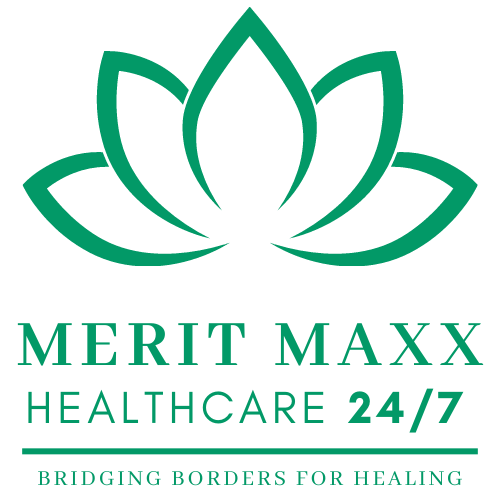
Become a Certified Professional Coder
Become a Certified Inpatient Coder
Ready to take the next step in your medical coding career?
The Certified Inpatient Coder (CIC®) credential is specifically designed for professionals working in inpatient coding within hospitals and healthcare facilities. As a CIC® certified coder, you will gain specialized expertise in abstracting information from medical records for accurate ICD-10-CM and ICD-10-PCS coding. This certification also provides a solid foundation in the Inpatient Prospective Payment System (IPPS), which is essential for understanding inpatient coding and Medicare Severity Diagnosis Related Groups (MS-DRG).
With the demand for skilled inpatient coders on the rise, earning your CIC® certification can significantly enhance your career prospects. Those who hold this credential can code services rendered in a variety of inpatient settings, including acute care hospitals, skilled nursing facilities (SNF), inpatient rehabilitation facilities, trauma care centers, critical access hospitals (CAH), and long-term care hospitals (LTCH).
Why Choose CIC® Certification?
As healthcare systems evolve, the need for proficient inpatient coders continues to grow. The CIC® certification sets you apart as a knowledgeable professional in the field, equipping you with the skills needed to navigate the complexities of inpatient coding. Additionally, certified coders can earn approximately 30-40% more than their non-certified counterparts, making this a valuable investment in your future.
Benefits of CIC® Credential:
Proficiency in ICD-10-CM & ICD-10-PCS Coding: Master the skills necessary to accurately report diagnoses and procedures performed in inpatient settings, ensuring compliance with industry standards.
Expertise in Medical Record Reviews: Develop the ability to abstract critical patient information from medical records for accurate coding and documentation.
Adaptability to Coding and Reimbursement Changes: Learn to integrate updates in coding and reimbursement rules, including adjustments to the Charge Description Master (CDM), fee updates, and Field Locators (FL) on the UB04 form.
In-Depth Knowledge of Anatomy and Medical Terminology: Build a strong foundation in anatomy, physiology, and medical terminology, which is essential for accurate code assignment.
Understanding of Clinical Indicators and Disease Processes: Gain detailed knowledge of clinical indicators and disease processes to accurately assign ICD-10 codes for inpatient medical records.
Comprehensive Knowledge of Inpatient Prospective Payment System (IPPS): Acquire a thorough understanding of the IPPS, equipping you to effectively navigate the complexities of inpatient coding reimbursement.
Career Opportunities with CIC® Certification
Earning the CIC® credential opens doors to a variety of career opportunities in inpatient settings, including:
- Acute Care Hospitals
- Skilled Nursing Facilities (SNF)
- Inpatient Rehabilitation Facilities
- Trauma Care Facilities
- Critical Access Hospitals (CAH)
- Long-Term Care Hospitals (LTCH)
With your CIC® certification, you will be well-prepared to take on the challenges of inpatient coding, ensuring you contribute effectively to healthcare organizations.
CIC® Training with Merit Maxx Healthcare 24/7
At Merit Maxx Healthcare 24/7, our CIC® training program offers comprehensive, hands-on instruction to ensure you are fully prepared for the certification exam. Led by expert trainers, our program covers all essential topics related to inpatient coding, including real-world scenarios and practice exams to enhance your learning experience.
Medical Coding Course Curriculum
- Comprehensive review of the anatomy and physiology of each organ system
- In-depth understanding of medical terminology associated with each system
- Interactive learning through scenarios, exercises, quizzes, and assessments
- Overview of ICD-10-CM coding system
- Understanding ICD conventions, general guidelines, and chapter-specific instructions
- Hands-on practice with case scenarios, chapter-based quizzes, and assessments
- Introduction to CPT coding and AMA guidelines
- Detailed exploration of Evaluation & Management, Anesthesia, Radiology, Surgery, Pathology, and Medicine sections
- Explanation of modifiers, Local Coverage Determinations (LCDs), and medical necessity
- Coverage of Category II & III codes
- Extensive practice with case scenarios and specialty-specific exercises, followed by quizzes and assessments
- Introduction to HCPCS coding system and its guidelines
- How to identify codes for supplies and drugs in different sections
- Practical application of coding skills through real-world case studies and scenarios
- Review of medical records and the application of coding guidelines to patient charts
- Extensive practice with exam-style questions and mock tests
- Tips for effective exam preparation and time management strategies
- Guidance on how to approach coding certification exams
- Corporate etiquette and professionalism
- Communication and behavioral skills development
- Career orientation and corporate readiness training
Need some advice from our experts?
Request a Call Back Today Now!
We will make a single attempt to contact you from a withheld number, usually within 24 hours of your request.
